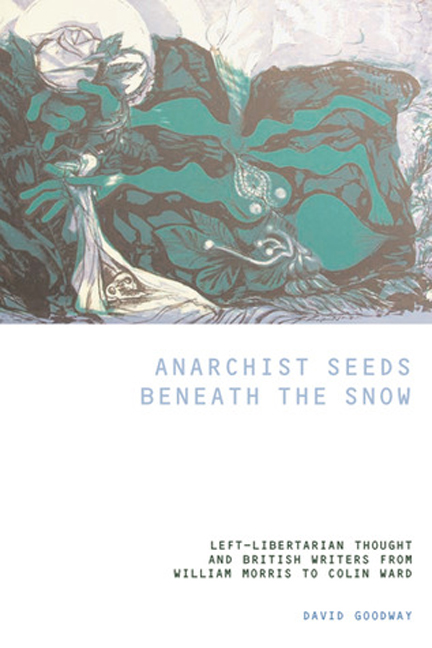 Anarchist Seeds Beneath the Snow
Anarchist Seeds Beneath the Snow Book contents
- Frontmatter
- Contents
- Dedication
- Acknowledgements
- Abbreviations
- 1 Introduction
- 2 Anarchism and libertarian socialism in Britain: William Morris and the background, 1880–1920
- 3 Edward Carpenter
- 4 Oscar Wilde
- 5 John Cowper Powys I: His life-philosophy and individualist anarchism
- 6 The Spanish Revolution and Civil War – and the case of George Orwell
- 7 John Cowper Powys II: The impact of Emma Goldman and Spain
- 8 Herbert Read
- 9 War and pacifism
- 10 Aldous Huxley
- 11 Alex Comfort
- 12 Nuclear disarmament, the New Left – and the case of E.P. Thompson
- 13 Christopher Pallis
- 14 Colin Ward
- 15 Conclusion
- Bibliography
- Index
7 - John Cowper Powys II: The impact of Emma Goldman and Spain
- Frontmatter
- Contents
- Dedication
- Acknowledgements
- Abbreviations
- 1 Introduction
- 2 Anarchism and libertarian socialism in Britain: William Morris and the background, 1880–1920
- 3 Edward Carpenter
- 4 Oscar Wilde
- 5 John Cowper Powys I: His life-philosophy and individualist anarchism
- 6 The Spanish Revolution and Civil War – and the case of George Orwell
- 7 John Cowper Powys II: The impact of Emma Goldman and Spain
- 8 Herbert Read
- 9 War and pacifism
- 10 Aldous Huxley
- 11 Alex Comfort
- 12 Nuclear disarmament, the New Left – and the case of E.P. Thompson
- 13 Christopher Pallis
- 14 Colin Ward
- 15 Conclusion
- Bibliography
- Index
Summary
How well, it needs to be asked, did Emma Goldman and John Cowper Powys know one another before 1936? And how and when did they first meet? The evidence, printed and unprinted, is tantalizingly sparse. Goldman, in an early letter after contact was re-established, recalled finding his sister ‘once when I came to see you… at work on lace-making’. This was Marian Powys, who had travelled from England to New York in December 1913, was shortly to share apartments with her brother on West 12th Street in Greenwich Village, went on to open a lace shop in Washington Square, and spent the remainder of her life in New York State. It seems most likely that Goldman and Powys had become acquainted after he had cancelled a series of lectures at the Hebrew Institute, Chicago, because the premises had been denied in the summer of 1915 to Alexander Berkman, who had been announced to speak on the Caplan–Schmidt case. At that time, according to Goldman, ‘all [Powys] knew of Berkman was the misrepresentations he had read in the press’ – if Powys had already been acquainted with Goldman, he would necessarily have known more than that about Berkman.
David Caplan and Matthew Schmidt, anarchist comrades of Goldman and Berk man, had been indicted with James and John McNamara for the dynamiting, during a strike in 1910, of the Los Angeles Times building, killing 21 persons. The McNamara brothers, conservative and Catholic trade unionists, had pleaded guilty, but Caplan and Schmidt had gone underground, only to be arrested in 1914 after Schmidt had visited Goldman's house and an informer, Donald Vose, who had been living there on the strength of his mother's friendship with her, had tipped off the police. Berkman toured the country, arguing that the extreme violence of the employers in American labour disputes legitimated the response in kind by the workers. The case was to be used by Eugene O'Neill, much influenced as a young man by Goldman, Berkman and their circle, as the background for The Iceman Cometh.
Another potential point of contact between Goldman and Powys would have been their mutual friend, the novelist Theodore Dreiser (although his friendship with Powys only dates from late 1914).
- Type
- Chapter
- Information
- Anarchist Seeds Beneath the SnowLeft-Libertarian Thought and British Writers from William Morris to Colin Ward, pp. 149 - 174Publisher: Liverpool University PressPrint publication year: 2006


